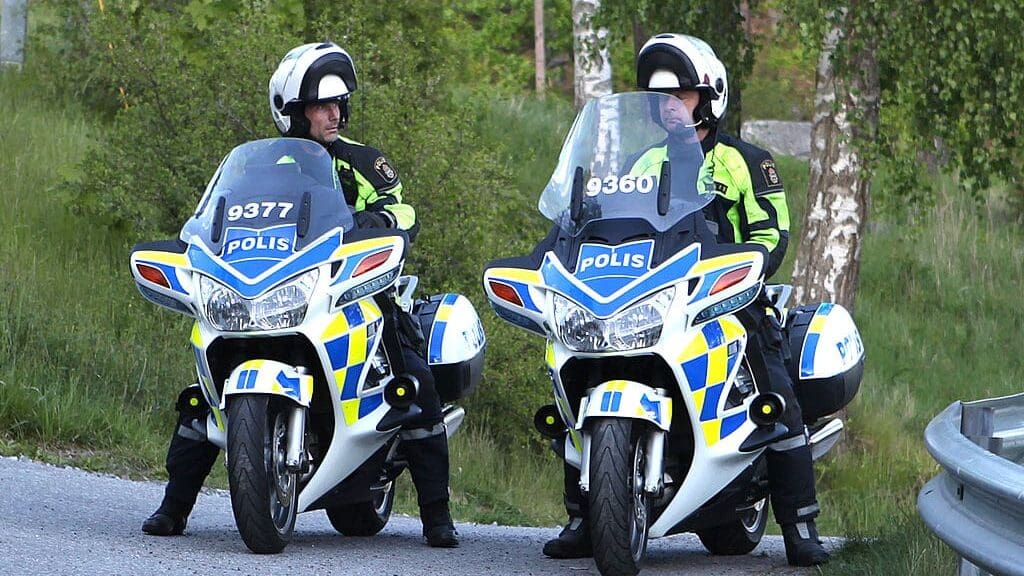
Photo: Bengt Nyman, CC BY 2.0, via Wikimedia Commons
We have reported before on how Denmark and Norway are tightening up borders to combat the influence—and influx—of gangs from Sweden. But criminal networks recruiting young ‘child soldiers’ obviously also poses a major challenge for Swedish authorities, challenging long-established thinking about children, crime, and punishment.
In a development new to Swedish police, children from well-functioning backgrounds, previously unknown to law enforcement, are being drawn into gang violence in increasing numbers.
“We have had a good understanding of societal risk factors for a long time, but it’s no longer enough,” Chief of Police at the National Operations Department Carin Götblad said in an interview with state broadcaster SVT.
An increasing number of children who commit murders for money presents a completely new situation, Götblad said, describing the problem facing Sweden as unique in the West:
We have a situation where children themselves are seeking work as killers. There’s nothing like it in modern times.
The Swedish judicial system is largely based on the philosophy that criminals need rehabilitation—not punishment. Preventative measures—from fighting poverty to providing activities and building youth centers—have traditionally been viewed as the main ways to stop youth crime. But critics say Swedish politicians lack understanding for the new type of crime and attempt to fight it with antiquated methods.
“Forget poverty, overcrowding, and social exclusion,” Luay Mohageb, police investigator with experience interrogating youth committing violent crimes, told daily Dagens Nyheter. Mohageb writes in a debate article in Expressen that Sweden is seeing
a whole generation that has been socialized into pro-criminal values and the idea that a criminal lifestyle generates social status. … They have learned this through a digital culture whose components are broken Swedish, obsession with money, honor, and violence.
“They go through the same radicalization process as ISIS fighters,” he said.
The Social Democrats, currently in opposition in parliament, have suggested providing an informational brochure titled “Gang Talk” to schools to inform about the potentially disastrous consequences of joining a criminal gang. MP Teresa Carvalo (Social Democrats) wants adults to warn children about the gangs “the same way we’ve always warned about dirty old men.” Emma Jaenson, opinion writer for daily BLT, writes:
believing that gang crime can be eliminated through information shows two things: first, that one does not understand what is happening, and second, that there seems to be a complete lack of answers to contemporary problems.
Law enforcement alone cannot stop the surge of violent crime committed by youth; it will take a massive effort from society as a whole, chief Götblad warned. At-risk children have to be identified early, she said, so that intervention in families—especially those with “weak parenting abilities”—can happen quickly. However, the comparatively light sentences for young criminals are a problem as well, Götblad said:
If you are under 18, four years in juvenile detention is the maximum sentence you can receive. And we see that both the gang members who assign the jobs and the children, the youths, include this in their calculations—”it’s not that bad, I’ll escape”—and they do—or, “I’ll get out quickly.”
She can’t judge whether juvenile detention or prison is a better solution, but said “These children are extremely dangerous and must be locked up, for their own sake and for the sake of society.”
As the number of children recruited to commit violent crime on behalf of criminal networks surges, so does the number of young gang members desperate to get out.
The children’s rights organization BRIS is seeing the fallout from children recruited for violent crime. The organization’s phone and text hotline, where children can seek advice anonymously, has seen the number of gang-related calls for support almost double since last year. The concerns young callers express range from fear of being recruited by criminal gangs to already being involved with a gang and not knowing how to get out. The problems often start when the children are 10-11 years old, BRIS Director General Magnus Jägerskog told SVT: “These are young people who have been lured into various networks, who face threats against themselves. They are suffering and want to get out.”
Recruiting children for criminal activity became a crime in Sweden last year. Since then, only 20 convictions have been made under the new law, most in relation to contract killings linked to the ‘Foxtrot’ criminal network led by Rawa Majid—dubbed “the Kurdish Fox” by the media. Majid, whose network Israeli intelligence believes to be be contracted to commit terrorist attacks by Iran, has been imprisoned in Iran for the past year and his mother, who was convicted of money laundering in 2022, was arrested in Iran on Monday.
